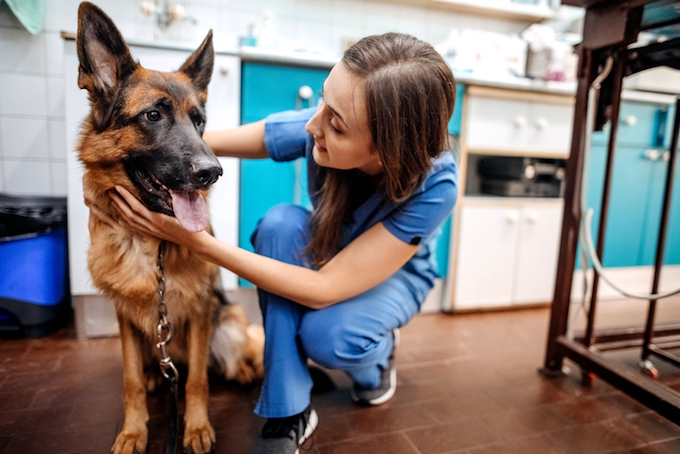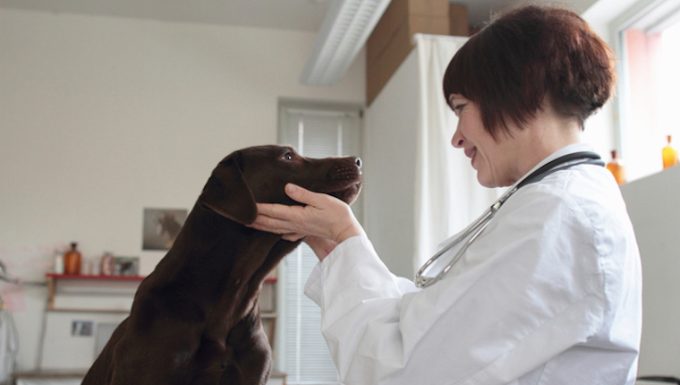Nose cancer (fibrosarcoma) in dogs happens when soft tissue tumors appear. Usually, the condition is treated by removing the tumor.
Generally, older dogs develop the condition more often than younger pups. Also, dogs with long skulls seem to suffer from the condition more than usual.
Technically, the condition is also known as nasal and paranasal sinus fibrosarcoma in dogs.
If you see the signs of the condition in your dog, then get to a veterinarian for a proper diagnosis and treatment.
Here’s what you should know about the symptoms, causes, and treatments for the condition.
Symptoms of Nose Cancer (Fibrosarcoma) in Dogs
The condition produces quite a wide range of symptoms. For instance, some of the most common symptoms include:
- Sneezing
- Loss of appetite
- Mucus discharge
- Loose teeth
- Bad breath
- Seizures
- Pain around the nose area
- Pawing at the nose a lot
- Enlarged lymph nodes
- Weight loss
- Acting lethargic
Causes of Nose Cancer (Fibrosarcoma) in Dogs

The cause of the condition is unfortunately unknown. However, vets have speculated that both genetics and environmental factors (including cigarette smoke) can be a cause.
Additionally, older dogs seem to develop the condition more frequently than younger dogs. Also, dogs with long skulls seem to be more likely to suffer from the condition than other dogs.
Treatments for Nose Cancer (Fibrosarcoma) in Dogs
Firstly, your vet will ask about your dog’s symptoms. Secondly, your vet will ask about your dog’s full medical history.
Thirdly, your vet will attempt to rule out other conditions that can produce similar symptoms. For example, some of those other conditions include:
- Viral infections
- Fungal infections
- Bacterial infections
- Parasites
- Tooth rot problems
- Trauma to the face
- Foreign bodies in the nose
- High blood pressure
Generally, your vet will use MRIs and CT scans to help diagnose the condition.
Usually, treatment focusses on removing any tumors. For example, radiation therapy is often used. Your vet can help talk you through this process. Additionally, chemotherapy is also sometimes recommended.
Have you ever cared for a dog who suffered from this condition? How did your vet help your dog recover? Let us know in the comments section below.









